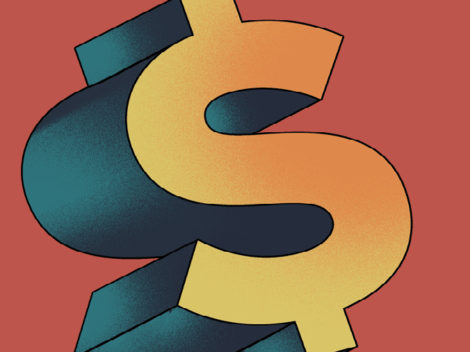Editor’s note: Mergers & Money is a monthly column by Senior Reporter Chris Metinko that covers dealmaking and the flow of venture capital in the enterprise tech space.
There’s rarely a dull moment in the world of crypto, and the past couple of weeks further illustrate the currencies’ ever evolving nature.
Just in the most recent two weeks, we’ve seen crypto’s value go through significant valuation gyrations despite extremely significant world events that should make it more useful; new billion-dollar funds announced as investors look to put more money into the space after a record year in 2021; and the White House issuing a long-awaited executive order about the industry.
And of course, all this is against the backdrop of the sector itself receiving more heated venture capital interest even as some large firms are cutting the valuations of high-priced tech unicorns in several other sectors.
Volatile market
Leading up to the Russian invasion of neighboring Ukraine on Feb. 24, crypto values were dipping. Bitcoin prices dipped to just above $37,000 on Feb. 21, and ethereum prices fell to $2,300 two days later.
Search less. Close more.
Grow your revenue with all-in-one prospecting solutions powered by the leader in private-company data.
While all investors hate uncertainty—although one would think crypto investors have a better appetite for it than most—this in many ways was a time to shine for cryptocurrencies. Cryptocurrency is a decentralized digital asset that is not connected to a centralized government—which in times of heightened geopolitical tensions one would think is a good thing.
“I think it showed us that crypto is absolutely terrible at pricing in geopolitical issues,” said Jordan Nof, a co-founder and managing partner at Tusk Venture Partners who invests in crypto. “It’s inefficient at pricing that in and just follows the public markets.”
The crypto market is still going through its ups-and-downs — and is still off about 40 percent from November highs. Both bitcoin and ethereum saw highs on March 1 — hitting more than $44,000 and $3,000, respectively. Since, bitcoin is around $39,000, while ethereum has dipped to about $2,600.
VCs not backing away
Even as prices were fluctuating, venture capitalists oddly seemed more enamored with the space as ever. In fact, in just about a week a handful of new funds were announced.
On Feb. 28, San Francisco-based crypto-native investment firm Hack VC unveiled a new $200 million “crypto seed fund” to invest in early-stage startups in crypto, blockchain and Web3. The new fund is backed by huge names in investment including Sequoia Capital, Fidelity and a16z’s Marc Andreessen and Chris Dixon.
Not to be outdone, a day later San Francisco-based crypto asset management firm Electric Capital announced the close of a new $1 billion fund—just as crypto prices were bouncing back.
But the run of new funds wasn’t over, as this week Bain Capital Ventures officially announced it will double-down in the crypto space, unveiling its new $560 million fund—branded as Bain Capital Crypto.
And finally yesterday, it was reported San Francisco–based Bessemer Venture Partners has created BessemerDAO, a group to discuss trends and pool resources to invest in crypto. It also was reported Bessemer has earmarked $250 million of its new $2.5 billion fund for deals in crypto.
The new funds were announced just as crypto is coming off a record year and apparently looking for more. According to Crunchbase data, pure venture funding—pre-seed, seed and all venture rounds—in cryptocurrency already is at $3.4 billion after just the first two month. Big rounds include a $400 million round for both San Francisco-based FTX US and Nassau-based FTX Exchange—which valued the latter at $32 billion—and a $300 million raise for New York-based OpenSea.
Last year, venture funding stood at $2.2 billion at the end of February.
The White House speaks
Of course, crypto’s two-week journey through war and VC exuberance would not be complete without some words from the government.
On Wednesday, President Joe Biden signed his long-awaited executive order that many had waited months to see. In it, the president touched on seven key areas—but seemingly stayed away from the regulations many in the sector were afraid would be included. Instead, the order asked agencies to offer recommendations and quicken their own reviews of crypto.
While the order “encourages regulators to ensure sufficient oversight and safeguard against any systemic financial risks posed by digital assets” to ensure consumers and investors are safe, and basically asks for the same thing regarding more economy-wide financial risks, real regulations are not spelled out.
However, some have pointed out that also may give agencies such as the Treasury, the SEC and others, wide-ranging authority to regulate crypto however they like.
Interestingly enough, the order also asks the government to look into a central bank digital currency—basically asking for a digital dollar. That is not unheard of, as countries like the U.K. and Sweden are also doing the same, and China already has issued its own CBDC across some provinces.
Regardless, the order did not seem to have the negative effect on crypto so many feared without talk of real regulations—and in fact Bitcoin rose immediately after the order was signed.
While that seems like a good sign for investors, if crypto showed us anything these past two weeks it is to expect the complete opposite of what logic dictates.
Illustration: Dom Guzman

Stay up to date with recent funding rounds, acquisitions, and more with the Crunchbase Daily.












67.1K Followers